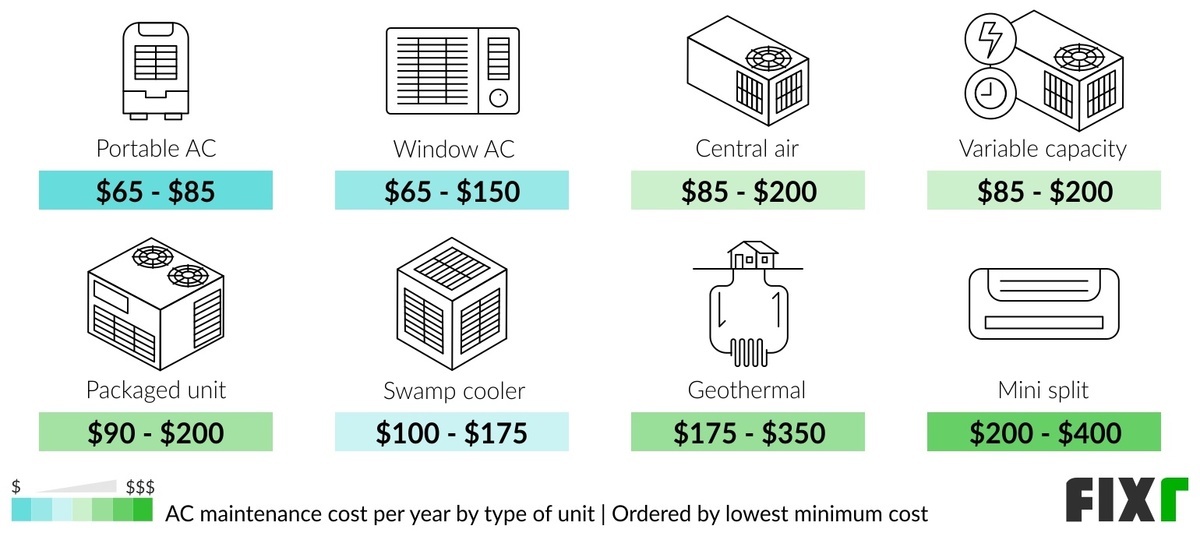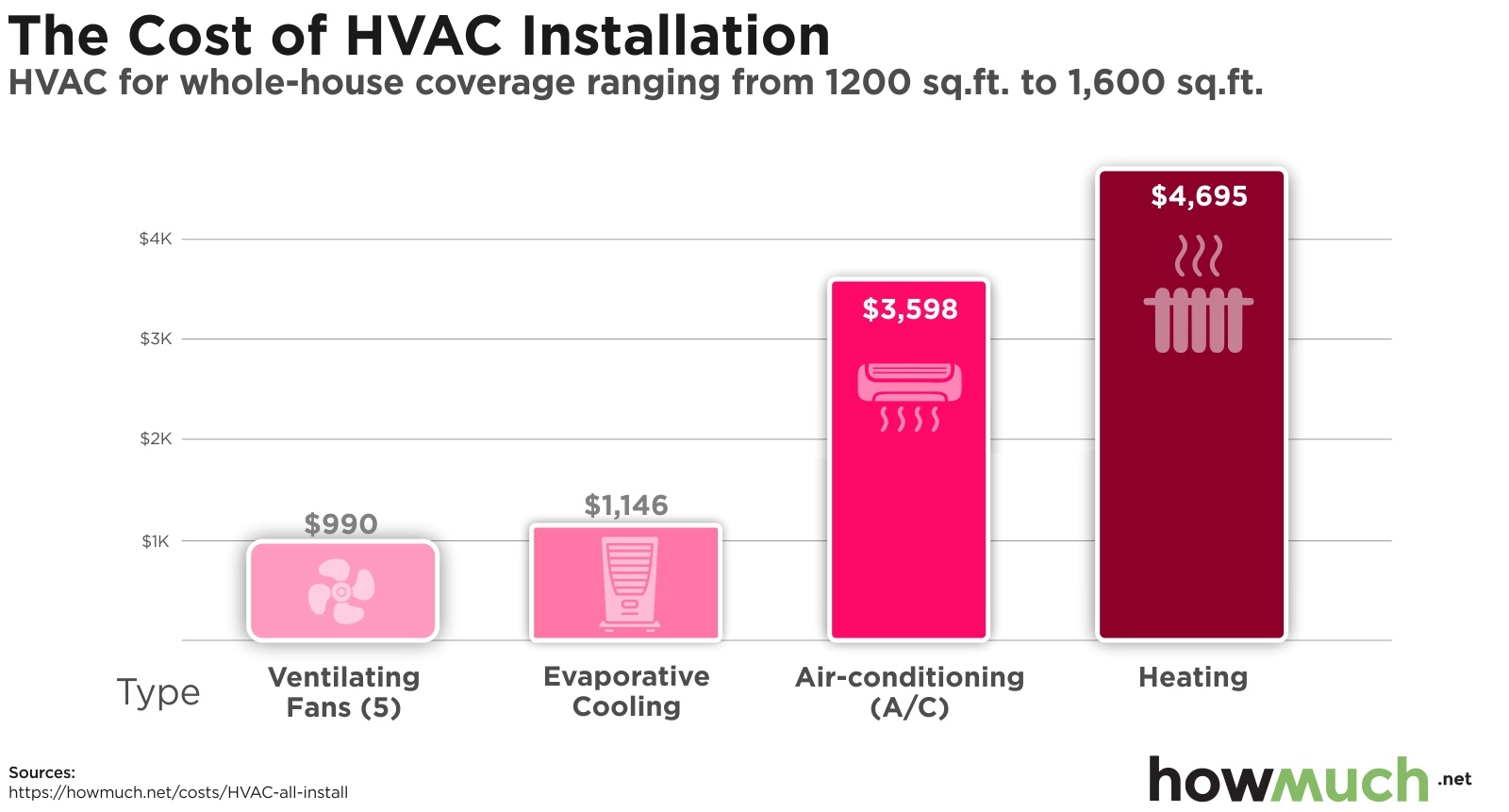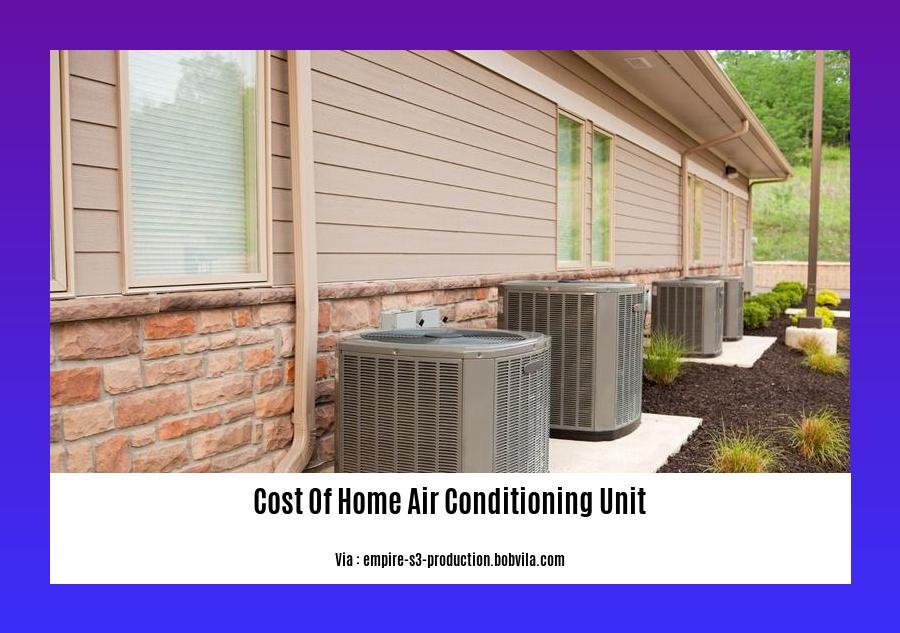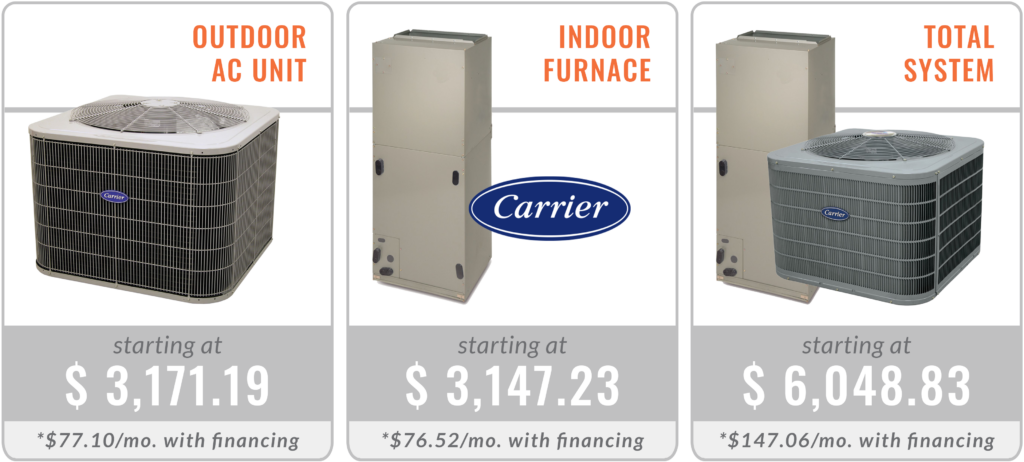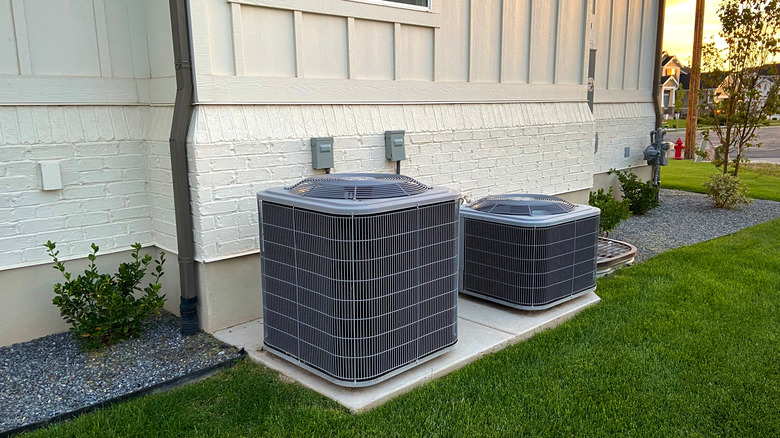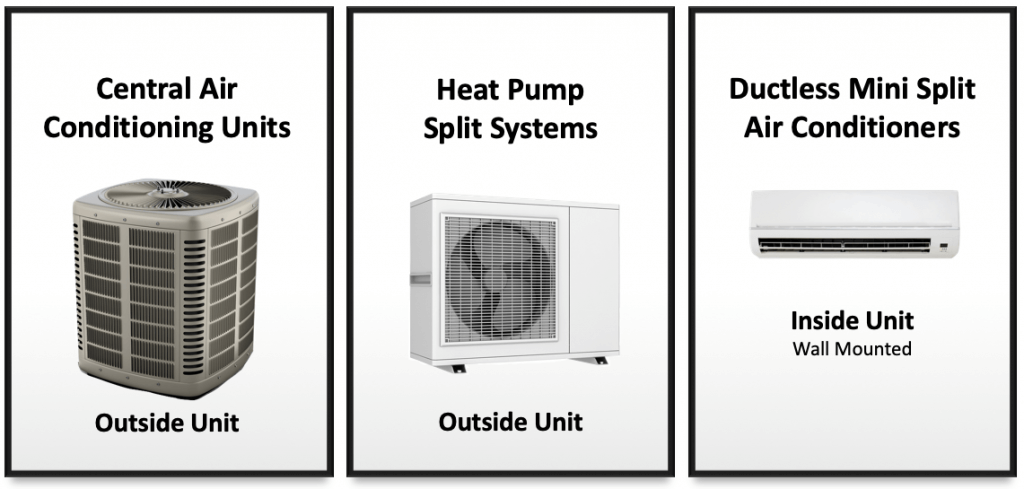How Much Does A Home Air Conditioning Unit Cost

Understanding the cost of a new air conditioning unit for your home is a critical step in maintaining a comfortable and safe living environment. Whether your existing AC is failing, you're upgrading for efficiency, or you're installing a system for the first time, navigating the price landscape can be challenging. This article will break down the factors influencing AC unit costs, providing you with the knowledge to make an informed decision.
Factors Influencing AC Unit Costs
Several elements contribute to the overall price of an air conditioning unit. These include the type of unit, its size and efficiency, the brand, and installation costs.
Type of Air Conditioning Unit
The type of AC system significantly impacts the price. Here's a breakdown:
- Central Air Conditioning: This is the most common type for whole-house cooling. Expect to pay between $3,000 and $7,000 for the unit itself, plus installation costs.
- Ductless Mini-Split Systems: Ideal for homes without ductwork or for targeted cooling. Costs range from $2,000 to $8,000 per zone, including installation. The price varies widely depending on the number of indoor units (zones) you need.
- Window Air Conditioners: The most affordable option for cooling a single room. Prices typically range from $100 to $500 per unit.
- Portable Air Conditioners: These offer flexibility and don't require permanent installation. Expect to pay between $300 and $800.
- Heat Pumps: Can both heat and cool your home. Costs are similar to central AC systems, ranging from $4,000 to $8,000, plus installation.
Size (BTU) and Efficiency (SEER)
The size of the AC unit, measured in British Thermal Units (BTUs), determines its cooling capacity. A larger home requires a unit with a higher BTU rating. The Seasonal Energy Efficiency Ratio (SEER) indicates how efficiently the unit operates; a higher SEER rating means lower energy bills. Choosing the correct size and SEER rating are crucial.
Generally, expect to pay more for higher BTU and SEER ratings. A 2-ton (24,000 BTU) unit with a SEER rating of 14 might cost around $3,500, while a 3-ton (36,000 BTU) unit with a SEER rating of 16 could cost $4,500 or more. Consult with an HVAC professional to determine the appropriate size and SEER rating for your home.
Brand
Reputable brands often come with higher price tags, but they typically offer better warranties, reliability, and energy efficiency. Some popular brands include:
- Carrier: Known for high-efficiency and advanced features.
- Trane: Offers durable and reliable units.
- Lennox: Focuses on energy-efficient and innovative technology.
- Goodman: A more budget-friendly option with decent performance.
- Rheem: Known for its value and variety of options.
While choosing a well-known brand can provide peace of mind, consider your budget and specific needs. A less expensive brand might suffice if you have a smaller home or are on a tight budget.
Installation Costs
Installation costs can significantly impact the total price of a new AC unit. These costs depend on several factors, including:
- Complexity of the Installation: Replacing an existing unit is typically less expensive than installing a new system in a home that doesn't have ductwork.
- Ductwork Modifications: If your existing ductwork needs repairs or modifications, this will add to the installation cost.
- Permits and Inspections: Local building codes may require permits and inspections, which can add to the overall expense.
- Labor Costs: HVAC contractors charge varying labor rates, depending on their experience and location.
Expect to pay between $1,500 and $5,000 for installation, depending on the complexity of the job. Always get multiple quotes from different contractors to ensure you're getting a fair price.
Typical Cost Ranges for Different Scenarios
To give you a better idea of what to expect, here are some typical cost ranges for different AC installation scenarios:
- Replacing an Existing Central AC Unit: $4,500 - $12,000 (including unit and installation)
- Installing a New Central AC System (with existing ductwork): $5,500 - $15,000 (including unit and installation)
- Installing a Ductless Mini-Split System (single zone): $2,000 - $5,000 (including unit and installation)
- Installing a Ductless Mini-Split System (multi-zone): $5,000 - $15,000+ (including unit and installation)
These are just estimates, and the actual cost may vary depending on the specific factors mentioned earlier.
DIY vs. Professional Installation
While some homeowners may be tempted to install an AC unit themselves to save money, it's generally not recommended, especially for central AC systems. Here's why:
Risks of DIY Installation
- Incorrect Installation: Improper installation can lead to reduced efficiency, premature failure of the unit, and even safety hazards.
- Warranty Voidance: Many manufacturers require professional installation to maintain the warranty.
- Refrigerant Handling: Handling refrigerant requires specialized tools and certifications. Improper handling can be harmful to the environment and illegal.
- Electrical Hazards: Working with electrical components can be dangerous if you're not properly trained.
When to Call a Professional
It's best to hire a qualified HVAC professional for the following situations:
- Installing a central AC system
- Working with refrigerant
- Modifying ductwork
- Dealing with electrical components
- If you're not comfortable with the complexity of the task
For simple tasks like replacing a window AC unit or cleaning the outdoor unit, you may be able to handle them yourself. However, always prioritize safety and follow the manufacturer's instructions.
Cost-Saving Tips
Here are some tips to help you save money on your AC unit and installation:
- Get Multiple Quotes: Compare quotes from at least three different HVAC contractors.
- Consider Off-Season Installation: You may be able to get a better deal during the off-season (fall or winter).
- Look for Rebates and Incentives: Check with your local utility company and government agencies for rebates and incentives on energy-efficient AC units.
- Choose the Right Size Unit: An oversized unit will cycle on and off frequently, wasting energy and potentially damaging the equipment.
- Maintain Your AC System: Regular maintenance can help extend the life of your AC unit and improve its efficiency.
Essential Tools for DIY Maintenance (When Appropriate)
If you plan to perform basic maintenance tasks on your AC unit, here are some essential tools:
- Screwdrivers (various sizes): For removing and tightening screws.
- Wrench Set: For tightening and loosening nuts and bolts.
- Vacuum Cleaner with Brush Attachment: For cleaning the condenser fins.
- Fin Comb: For straightening bent condenser fins.
- Multimeter: For testing electrical components (only if you are qualified).
- Safety Glasses: To protect your eyes.
- Gloves: To protect your hands.
Safety First! Always disconnect the power to the AC unit before performing any maintenance tasks. If you're not comfortable working with electrical components, call a professional.
Common Air Conditioning Problems and Potential Costs
Here's a list of common AC problems and potential repair costs:
- Refrigerant Leak: $200 - $1,000+ (depending on the severity and location of the leak)
- Dirty Air Filter: $10 - $30 (DIY replacement)
- Frozen Evaporator Coil: $100 - $500 (depending on the cause)
- Faulty Capacitor: $100 - $300
- Broken Fan Motor: $200 - $600
- Compressor Failure: $1,000 - $2,500+ (may be more cost-effective to replace the entire unit)
These are just estimates, and the actual cost may vary depending on the specific issue and the HVAC contractor you hire.
When to Consider Replacing Your AC Unit
If your AC unit is old (10-15 years or more), frequently breaks down, or is no longer energy-efficient, it may be time to consider replacing it. Other signs that it's time to upgrade include:
- Rising Energy Bills: If your energy bills are consistently higher than usual, it could indicate that your AC unit is losing efficiency.
- Inconsistent Cooling: If some rooms are cooler than others, it could be a sign that your AC unit is not properly distributing air.
- Strange Noises: Unusual noises, such as banging, rattling, or hissing, could indicate a mechanical problem.
- Frequent Repairs: If you're constantly repairing your AC unit, it may be more cost-effective to replace it.
Conclusion
The cost of a new air conditioning unit can vary widely depending on several factors. By understanding these factors and doing your research, you can make an informed decision and choose the right AC system for your home and budget. Remember to prioritize safety and hire a qualified HVAC professional for complex installations and repairs. With proper maintenance and care, your new AC unit will keep your home comfortable for years to come.


